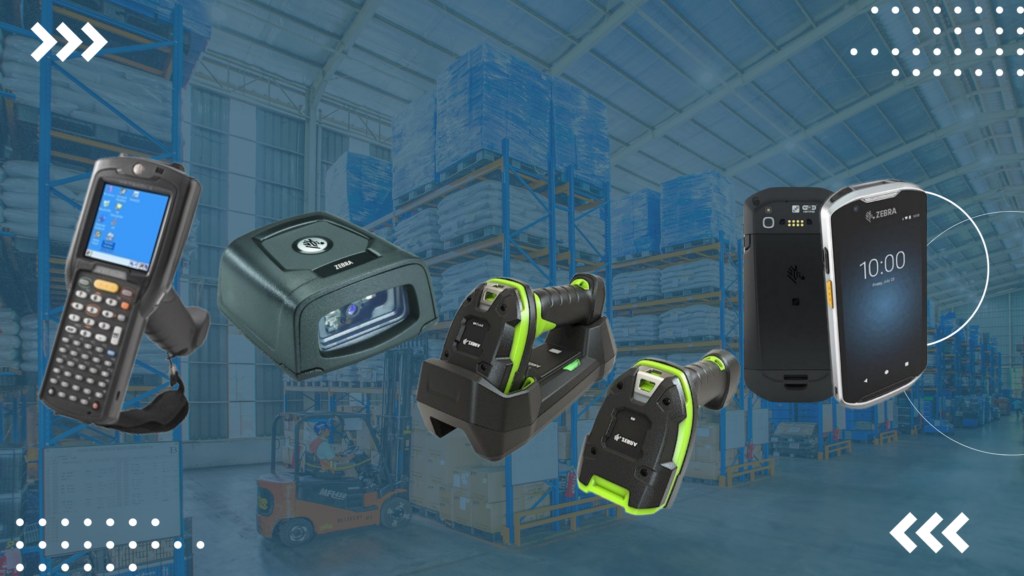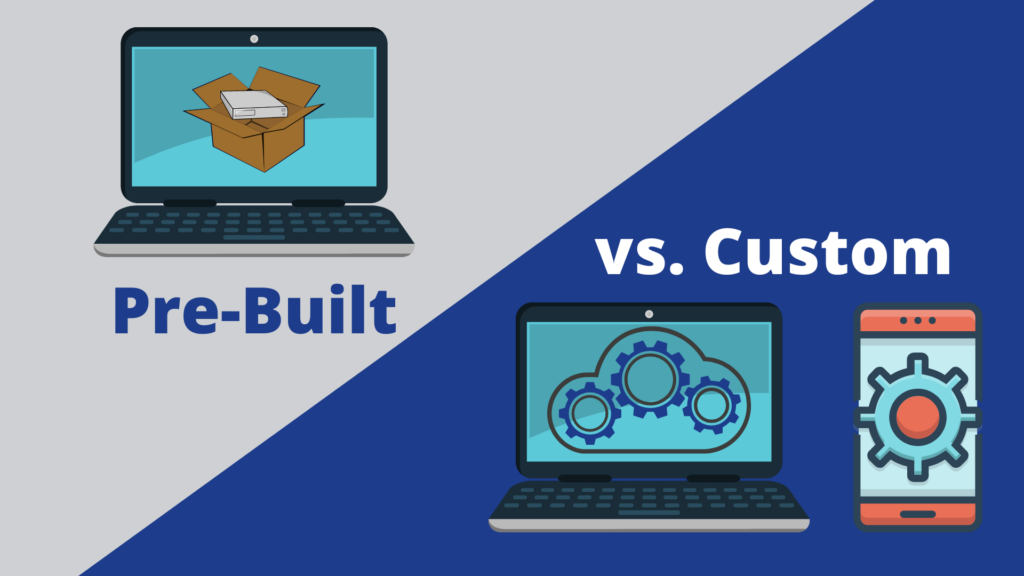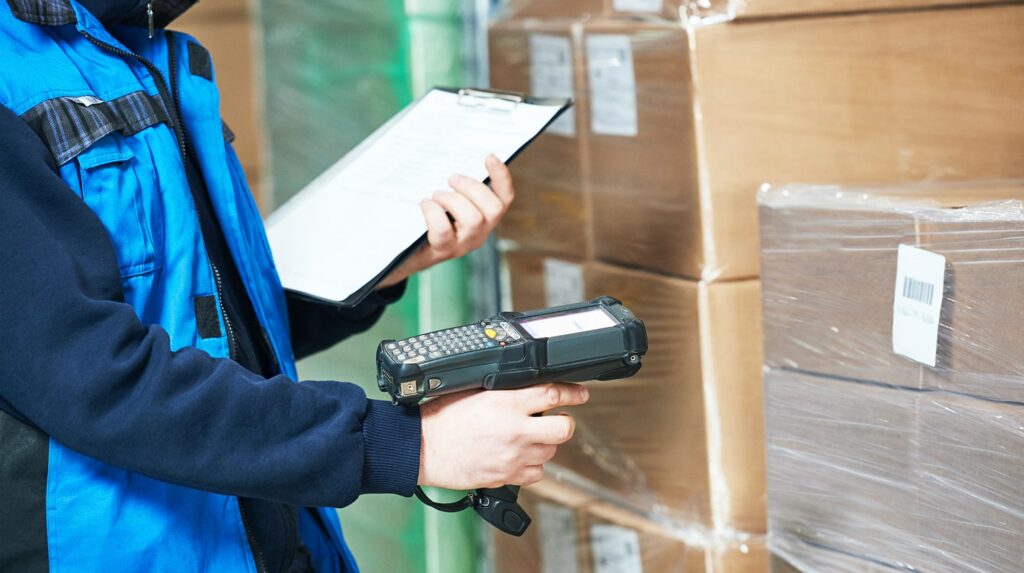Gone are the days of clunky scanners and mountains of paperwork. Smart barcode scanning is transforming the construction and manufacturing industries, injecting superpowers into workflows and boosting efficiency like never before.
But with so many options, finding the right smart scanner for your construction site can feel like navigating a maze. This guide will be your blueprint for success, dissecting the key factors to consider:
1. Mobile Muscle vs. Standard Dependability:
- Standard Scanners: These workhorses simply relay scanned data to a computer. They are useful for specific tasks, but lack the smarts to automate workflows or perform actions. Often, you must first place the cursor exactly where you want the value to be entered before you scan. The biggest downside is the fact that these scanners require a computer at all. They don’t have a brain so they need the computer to send the value to. They don’t have any ability to perform an action on the value themselves.
- Smart Scanners: These scanners are basically “mobile computers.” Think of them as smart phones on steroids. These bad boys run Android (sorry Apple fans!), have brains of their own, and let you ditch the computer tether. Imagine completing tasks and tracking materials without ever leaving the warehouse. Smart scanners are a powerful breed of barcode scanners that go beyond simply reading barcodes. They’re like the Swiss Army knives of the scanning world, packed with features that can streamline workflows, boost efficiency, and even reduce errors.
2. Rugged Reliability:
Construction sites are battlegrounds. Your scanner needs to be a tank, not a teacup. Look for features like:
- IP Ratings: These indicate dust and water resistance. Aim for IP67 or higher for ultimate peace of mind.
- Pocket or ‘Pistol Grip’: Ergonomics and comfort matter, especially during long shifts. A scanner that fits your hand like a glove will boost productivity and prevent fatigue. Warehouse users at the loading dock often prefer a scanner with a pistol grip so they can conveniently ‘point and shoot’ barcodes as they move throughout the warehouse.
- ‘Ultra Durable’ or Standard: Most hardware vendors will have ultra-rugged models designed for scenarios where the scanner is expected to be regularly dropped on hard concrete. It’s important that standard models are tested to be safe to drop from up to 8ft on solid concrete. Accidents happen. Ensure your scanner can survive a tumble like a seasoned stuntperson.
Some specialty models used by our customers for unique environments are:
- MC3300: Long range scanning for high shelves.
- Bartec/Zebra TC77-NI: Naturally safe units for combustible environments.
- Compact versions for ultra mobility.
- Tablet versions for maximum screen size.
- DS3608-DP & DS457: Stationary models for self-service kiosks.
- Rugged scanners for harsh environments.
3. Features for Your Needs:
Not all scanners are created equal. Choose one that empowers your team with features like:
- Multiple Barcode Symbologies: Can it handle QR codes, UPCs, and everything in between?
- Standard or Long-Range: To scan barcodes at distances of up to 25 feet you need a long-range scanner. They’re a good option if you have tall shelves or need to scan barcodes from a forklift. Standard scanners are the most common type. They’re designed to scan barcodes at close range, typically up to 6 feet.
- Laser or RFID: Laser scanners are the most common type of barcode scanner. They use a laser beam to read the barcode and send the data to your computer. RFID scanners, on the other hand, use radio waves to read tags that are attached to items. RFID scanners are more expensive than laser scanners, but they have some advantages. For example, they can read tags that are dirty or damaged, and they can read multiple tags at once.
- Fixed or Mobile: Fixed scanners are mounted in one place, while mobile scanners can be carried around. Fixed scanners are a good option for applications where you need to scan items in a specific location, such as a checkout counter. Mobile scanners are more versatile and can be used anywhere in the warehouse.
4. Best Barcode Scanner Brands:
Zebra and Honeywell dominate the mobile computer scene, these brands are used by Walmart and Amazon and specialize in mobile barcoding solutions. Smaller players can pack a punch too. Most of the time your software provider or certified partner can provide hardware recommendations. Research your options, test-drive the scanners, and choose the brand that best aligns with your needs and budget.
Nobious has used Zebra for a lot of our clients’ smart barcode scanning needs for their design, performance, durability, and ease of use. The best way to choose a barcode scanner brand is to consider your specific needs. Think about the type of barcodes you need to scan, the environment you’ll be using the scanner in, and how often you’ll be using it. Once you’ve considered these factors, you can narrow down your options and choose the brand that’s right for you.
5. Partner Power:
Don’t go it alone! Find a certified partner who can provide expert advice, setup, and ongoing support. Remember, a good partner is like a trusty compass – always there to keep you on the right path forward.
Nobious specializes in smart barcode scanning options for inventory management in the construction and manufacturing industries. Many of our clients come to us with no smart barcode scanning capabilities since they currently only use standard or no scanners at all.
Smart barcode scanning isn’t just a gadget, it’s a game-changer. By choosing the right tool and harnessing its superpowers, you can build a smoother, more efficient, and ultimately, more profitable construction operation. So grab your scanner, scan your way to success, and leave the paper chase behind.
Nobious: Your Trusted Partner in Barcode Scanning
Nobious specializes in smart barcode scanning options for inventory management in the construction and manufacturing industries. Many of our clients come to us with no smart barcode scanning capabilities since they currently only use standard or no scanners at all. Contact us below to set up a demo.



